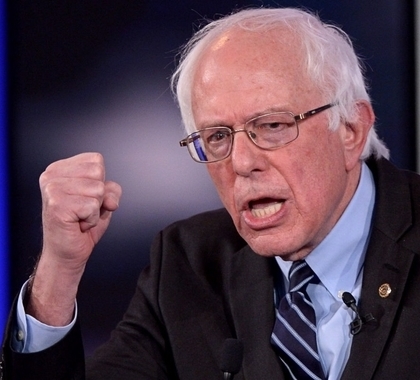Vermont Sen. Bernie Sanders recently introduced legislation — Senate Resolution 3410, officially titled the “Stop Bad Employers by Zeroing Out Subsidies (BEZOS) Act” — meant to coerce Amazon.com founder Jeff Bezos and other CEOs into enhancing the benefits and wages of their employees.
Despite much support from the Left, this legislation would do little to benefit workers. In fact, it will probably end up harming many of them.
Sanders and Rep. Ro Khanna, D-Calif., the sponsor of the House version, say the bill would end corporate welfare. Khanna and Sanders describe the bill as a solution to the government’s current practice of “subsidizing profitable corporations owned by some of the wealthiest people in this country.”
In a press release, Khanna said the BEZOS Act is populist in nature and would stick up for the little guy against “massive corporations.”
If enacted, S.R. 3410 would increase the federal business tax burden of employers with more than 500 employees. The bill would levy “a tax equal to 100% of the qualified employee benefits with respect to such employer for the taxable year,” including food stamps, government-provided meals for schoolchildren, housing subsidies, and Medicaid.
Burdening Employers
In other words, the bill would tax employers for the government benefits their employees receive.
As with most other proposals spun by Sanders, the BEZOS Act addresses problems in the wrong manner.
Contrary to the assumption underlying the proposal, Jeff Bezos and several other titans of industry are generally not benefitting from the largesse of entitlement spending, so soaking the rich would do little to ameliorate the problem of out-of-control spending on Medicaid and other benefits programs.
The federal government spent more than $553.4 billion on Medicaid in 2017. By 2048, without a significant course correction, Medicaid, Medicare, and Social Security will consume nearly half of all federal noninterest spending.
Ironically, Sanders’ bill would incentivize business owners to help fewer low-income individuals. As the saying goes, the best cure for poverty is a job, but if hiring low-income workers becomes costlier to business owners, they will simply not hire those people.
Paycheck To Paycheck
“There’s no reason why people who work hard to provide for themselves and their families should be living paycheck to paycheck, having to choose between feeding their family and making rent,” Khanna said. “Our nation needs to provide people with basic fairness. Massive corporations are only draining our economy by vastly underpaying workers.”
If workers and business owners do not benefit from this proposal, then who does? Government bureaucrats. Instead of hiking taxes on large businesses in the name of “fairness,” Sens. Khanna and Sanders should do something truly radical for “the people”: get out of the way.
After one of the slowest economic recoveries in American history, presided over by Democrats and Barack Obama, Trump-era tax cuts and reduced regulations have fueled an economic resurgence.
Raising Taxes
Why would Congress want to impose taxes, which would stifle the economy, at an important time like this? Consumer demand for goods and services is surging. Meanwhile, unemployment is the lowest in decades, and GDP is approaching growth rates it hasn’t reached in years.
When Khanna said, “there’s no reason why people who work hard to provide for themselves and their families should be living paycheck to paycheck,” he was right. However, Khanna and Sanders’ solution to this vexing problem would only exacerbate the issue.
The only proven way to meaningfully increase workers’ wages and ensure people have a “living wage” is to get government out of the way. Government, not Jeff Bezos, is the problem, and free-market solutions and fiscal responsibility are the answers.
[Originally Published at the Investor’s Business Daily]





